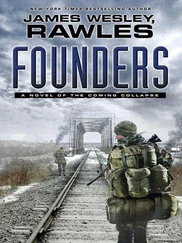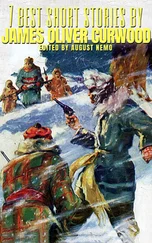The local economy was starting to recover and there were even hopes of reopening the university, but the threat of invasion by UNPROFOR loomed on the horizon. To have enough silver to live on, Joshua, Megan, and Malorie shared a twenty-four-hour-a-day job as “receptionist/concealed-carry security guard” at the front desk of Christ Church. They each took an eight-hour shift. The job paid $1.20 a day, which was just enough for them to live on. Though they had to deal with many issues as receptionists (mainly referring refugees to sources of aid), there were also lots of quiet hours at the desk, time Joshua devoted to gathering intelligence about ProvGov activities and UN troop movements. Malorie took the day shift so Megan could homeschool the boys, Megan took swing shift, and Joshua took the graveyard shift.
Their new living arrangement worked well through the winter. They settled into a steady work routine. Thanks to Malorie’s skills as a mechanic, they even set aside a little more silver.
Moscow, Idaho—October, the Fourth Year
The Moscow-Pullman region was immediately thrown into turmoil when the UNPROFOR armored column appeared. As usual, UNPROFOR began with flowery promises, but eventually delivered tyranny.
In response, Joshua’s cell went completely underground. They quit their receptionist jobs and began full-time intel analysis. With the Maquis now paying their rent and delivering them groceries once a week, Megan and Joshua decided to set up their own higher-level Tactical Operations Center, or TOC.
Instead of just setting up another collection or analysis cell attached to an individual militia, Megan and Joshua decided on the brigade-level TOC concept for several reasons. First was Megan’s recent military expertise, both in uniform and as an NSA contractor. She had spent a lot of time working in a tactical TOC and knew that she could set one up herself if she ever had to. There were not many other intelligence analysts in the region with her expertise. Second, the other intelligence cells attached to the Maquis and other militias were usually busy collecting raw intelligence and had few analytical skills or resources. Third, and most important, since the Moscow Maquis was currently the largest and most active militia in the area, these other intelligence cells needed someone to provide intelligence synchronization. “The intel people in Spokane” could battle-track the big picture for the entire region and then create intelligence reports, situational map templates, and so on, to brief the two Maquis leaders. And they wanted to fulfill the intelligence requirements (IRs) that these militia leaders had for their region as close to real time as possible.
Joshua was chosen as the contact to sell this arrangement to the other militias’ intelligence cells (some of which consisted of only one person, a collector). Joshua’s intention was to get the other cells to routinely report events and incidents as they occurred. In return, the other cells were encouraged to make their own Requests for Intel (RFIs) to Megan, Joshua, and Malorie. The other cells could also rely on them for “reachback” support, meaning research and analysis of particular weapons systems, vehicles, order of battle (OB), UN deployment schedules, or anything else that the other cells needed to know. This also included providing training to the other cells, in areas such as SALUTE format reporting, military symbology, and battle tracking. For OPSEC, Joshua spoke only with the actual intel people involved in “training the trainer” mode. This way the intel cells could then train the rest of the members within their own militias.
There was already an incredible “unity of effort” within the resistance, an advantage of most insurgencies. Many military schools (the U.S. Army, in particular) teach the concepts of unity of effort, unity of command, and so forth. However, in reality, these concepts tend to go in one ear and out the other, particularly with occupying military forces that are engaged in counterinsurgency warfare.
A majority of the other intelligence cells were actually relieved that a centrally organized intelligence effort was now taking place. This added to the perception that the resistance was getting bigger and better. Just the word circulating of “the Spokane Intelligence Center” was a huge morale boost within the resistance in the region.
The first two weeks of setting up their TOC were rough going. Since they lived in a small rental house in the middle of a suburb, they needed to establish where the TOC was going to be located within the house itself. After briefly considering one of the bedrooms, they decided on the small dining area attached to the kitchen. Things needed to be as compact as possible to fit map boards and several netbook computers for report writing and maintaining an event log, along with a printer.
Next, they had administrative OPSEC issues. They needed to operate under maximum light and noise discipline. All blinds and drapes around the TOC were closed, with blankets taped to the window frames, and reinforced with black, heavy-duty plastic garbage bags duct-taped over the top. For a final yet important touch, they installed a “lightlock” around the back door of their house, which used the same principle as an airlock on a spacecraft or submarine, except for light instead of air.
They had one of the Maquis members test their light discipline one evening, using a captured PVS-14 night vision monocular to look for any light leaks that might be seen by someone with well-adjusted natural night vision, or through another night vision device. The lightlock was not perfect for concealing all trace amounts of light, but being located in town, it did not need to be.
They also had thermal signature considerations. Despite the fact that most houses used woodstoves all through the winter, they did not want to glow like a Christmas tree to any airborne thermal imaging systems at odd hours of the night. Heat was kept to a minimum since the bodies, radios, and computers created their own residual amounts of heat.
For noise discipline, the blankets over the insides of the windows worked well, though they also covered the linoleum floor of the dining area with throw rugs to absorb noise. This had the added benefit of providing heat insulation.
For message traffic, they encouraged the other cells to make a series of written SALUTE reports using USB thumb drives. They were to leave them at a dead drop inside a plastic play “fort” in the backyard of an abandoned house down the street. The dead drop was checked early each morning by Jean and Leo, who regularly rode their bicycles in the neighborhood.
Last but not least was access to the TOC. Since it sat in the middle of the house, they did not entertain guests. No one saying that they were a “militia member” could just enter the house. The only people permitted inside the TOC were the two Moscow Maquis leaders, and then only to receive briefings (or debriefs) by Megan, Joshua, or Malorie.
They encouraged the other cells to include as much detail as possible in their SALUTE reports and not to worry about redundancy within a report, such as mentioning equipment, or weapons, a second time. This made for more accurate reporting, they explained.
They also taught the other cells to “filter” or review and rewrite these reports, if necessary, rather than just sending lots of small, separate SALUTE reports. For instance, an analyst at a cell might receive a bunch of small, separate SALUTE reports coming to them from several different militia members, all seeing the same thing. This filtering would not only make Joshua, Megan, and Malorie’s jobs easier, it would provide better OPSEC, in limiting unnecessary message traffic.
Before they could get the TOC up and running, they focused on putting together their own situational templates (SITTEMPS) that would display all current information on events in the region.
Читать дальше












